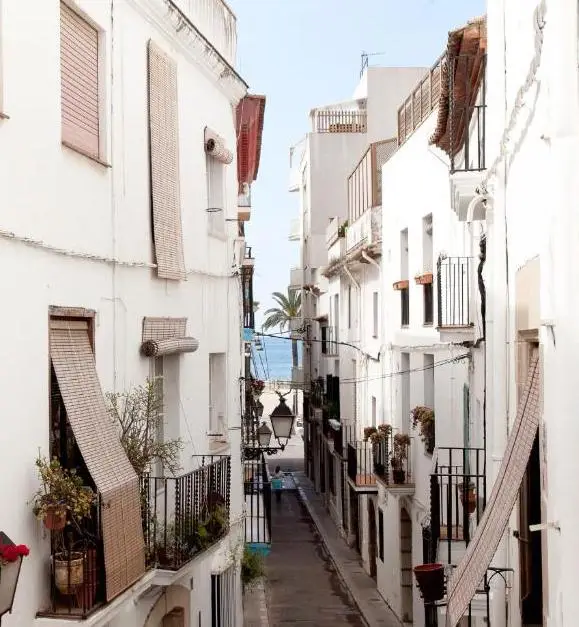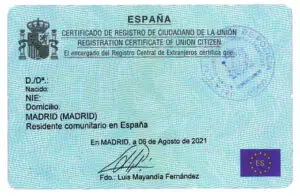
Property: Rent in Spain
There are many good reasons to rent in Spain; protections for tenants are strong, and it’s a great way to check out your target area properly before sinking your cash into a property purchase. However, as with most countries, there are laws and costs to be aware of, as well as pitfalls to be avoided. On this page, we tell you everything you need to know. See also: Buying Property in Spain
On this Page
Rent in Spain: forewarned is forearmed
Spain is not a lawless country by any means. However, as with any other country in Europe, there are sometimes people here who are ready to take advantage of newcomers. Among these are certainly some people or companies calling themselves ‘estate agents/realtors’. If you are planning to rent in Spain, the first things you need to know are:
- For rentals, the estate agency/realtor fee should be paid by the property owner
- There are different types of contracts that give you different rights. Make sure you get the one that suits you best
- Never send money in advance no matter how much the estate agent/realtor insists. Money should not change hands unless you have a signed contract in your hands
- Sometimes scammers set themselves up with a fake name and steal photos from other listings to advertise their ‘properties’. Make sure you are dealing with a legitimate estate agent/realtor. In Catalonia, they should have a registered API number. In other parts of Spain, you will need to check other details, such as registered address; NIF/CIF number; Google reviews, etc. A legitimate company will have a registered name and NIF number, and the company name will usually have an SL (limited company) after it.
What you need to be able to rent in Spain
To be able to rent a property for more than 90 days in Spain you are likely to need the following:
- NIE number
- Passport from an EFTA country or passport from a non-EFTA country and visa
- Proof of funds (eg work contract etc)
- The first month of rent plus a month’s rent as a deposit (in some cases, you may be asked for 2 months’ rent as a deposit)
Rent in Spain: different contract types
Types of rental contract:
- Seasonal: You can rent a property for a specific time period using a contrato de temporada/de uso distinto a vivienda so long as the reason for using this type of contract and the length agreed between the parties is justified in the contract (usually, it is stated that the tenant needs the property for work or study reasons, or similar). The duration of these contracts can actually be any period agreed by both parties, but the tenant will not have the same rights/protections of up to 5 years of tenancy that they have in a normal rental contract. For this reason, they are usually used when there is some other advantage for the tenant; for example, the rent is lower than usual because it is agreed that the tenant will not be there during the summer months. If you go for this type of contract & you’re planning on staying more than 90 days, it’s probably a good idea to add a clause stating that the landlord will give their authorisation for you to get a certificado de empadronamiento as you will need this from the town hall, and they may expect a ‘normal’ rental contract to be shown before you can get it. NB This type of contract is not currently subject to the property law which came into force in May 2023. However, the new law provides for a working group to spend 6 months studying how to incorporate this type of contract into the law.
- Long term: ‘Normal’ contrato de arrendamiento rental contracts involve a tenant having the right to renew the contract for up to 5 years, even if the contract is for 1 year. During this time, the rent can only increase according to the consumer price index, and only if this is stated in the contract. Note that in some circumstances a property owner can require the property back after the first year, but only if they need it for specific reasons for themselves or for their parents or children (in which case they must give 2 months’ notice and move in within 3 months after the tenant has left). Finally, rental contracts (probably including seasonal contracts) are likely to be subject to rent controls in the near future. Properties in Sitges were briefly subject to such controls, but the Catalan law was struck down by Spain’s supreme court so that a national law could be made instead. Watch this space!
- Tourist rentals: In Sitges, a property needs a tourist license from the town hall before it can be used for tourist rentals. There has been a moratorium on new licenses for about 7 years and Sitges passed a law which prevented licenses being passed on with a property when it is sold. After the law had been in place for many months, it was recently struck down by Catalunya’s supreme court, and so is no longer in effect (yes, laws can be a minefield!) The town hall also limits the number of licensed properties so that they will never make up more than a determined percentage of the town. However, since a lot of new housing stock has been developed in the town over the last 6 or 7 years, it is expected that some new licenses will be available in the near future. Note also that if a property is part of a ‘comunidad’, a property owner would need to check whether such activities are allowed by the comunidad before applying for a tourist licence.
Rent in Spain: rent controls & additional costs
The cost of renting a property may include the following:
For property owners & tenants
Estate agent & ‘contract’ fees
According to the new law, all estate agent fees must be paid by the property owner, so long as the contract is the typical rental contract valid for up to 5 years.This is the same for fees relating to the drawing up of the contract.
If a contrato de temporada is being offered instead, this must be clearly justified (see types of contract, above). In a contrato de temporada, the estate agency fees can still be payable by the tenant if this is stated in the contract.
Deposits
A deposit is usually equivalent to one month’s rent, although you may be asked for more if you don’t have proof of regular funds.
In Catalonia, the deposit must be placed in INCASOL by the owner, and the property owner must give the tenant proof that it’s been placed there.
It’s a good idea to take photos of the condition of the house and any issues, and have the property owner sign this when you move in.
If a property owner is intending to retain any part of your deposit, ask for a written justification of why. This may have more effect if you send it via a lawyer, and by Burofax. If the owner cannot justify their allegations, this is often enough to remind them to act according to the law. Remember, they may be justified in their allegations, in which case they have the right to retain part of the deposit. If there are outstanding utility bills when you leave, a small part may be retained until the bills arrive.
Rental controls & laws
In ‘normal’ (5 year) rentals, these can only usually be increased by the consumer price index (IPC). However, the can be accumulated (though not backdated). For example, if the IPC was 3% each year from 2020-2023 but the property owner didn’t increase the rent, then they could choose to increase it by 9% for 2024, although they can’t ask you to pay any extra for years that have already passed.
Due to the huge increases in the IPC in recent years, the government has intervened to establish maximum rental increases, regardless of the IPC. For 2024, this will be 3%.
In February 2024, new rent controls are due to be introduced, affecting all future contracts. Each property will be subjected to a maximum permitted rent depending on its individual characteristics. This page will be updated as the situation becomes clearer.
Other fees
Comunidad is the monthly or quarterly fee paid to the community for upkeep of communal areas (may not apply for some independent houses). This is usually paid by the property owner but a contract could state that the tenant is reponsible.
A rubbish tax, payable to the town hall, can be paid by the tenant or the owner, depending on what’s agreed in the contract.
More articles that may be of interest:

The dreaded okupas/ squatters in Spain: The end in sight?
The end for Squatters in Spain? Nov-24 A new amendment to the law regarding squatters

Residency in Spain for EU citizens: our easy to follow guide
Residency in Spain for EU Citizens If you are an EU or EFTA citizen, you

Move to Spain -practical information to help make your move to beautiful Spain easy
Move to Spain If you’re thinking about a move to Spain, there’s quite a lot

Visit Spain – all the information you need for an easy stay in this beautiful country
Visit Spain Use this page to guide you to the information you need On this

EES Spain: Our easy to follow guide
EES Spain If you are wondering what the EES system is and how it will

How to get the green NIE (Certificado de Registro) An easy to follow guide
Get your ‘Green NIE’ (Certificado de Registro) The Certificado de Registro de Ciudadano de la
Share this page
